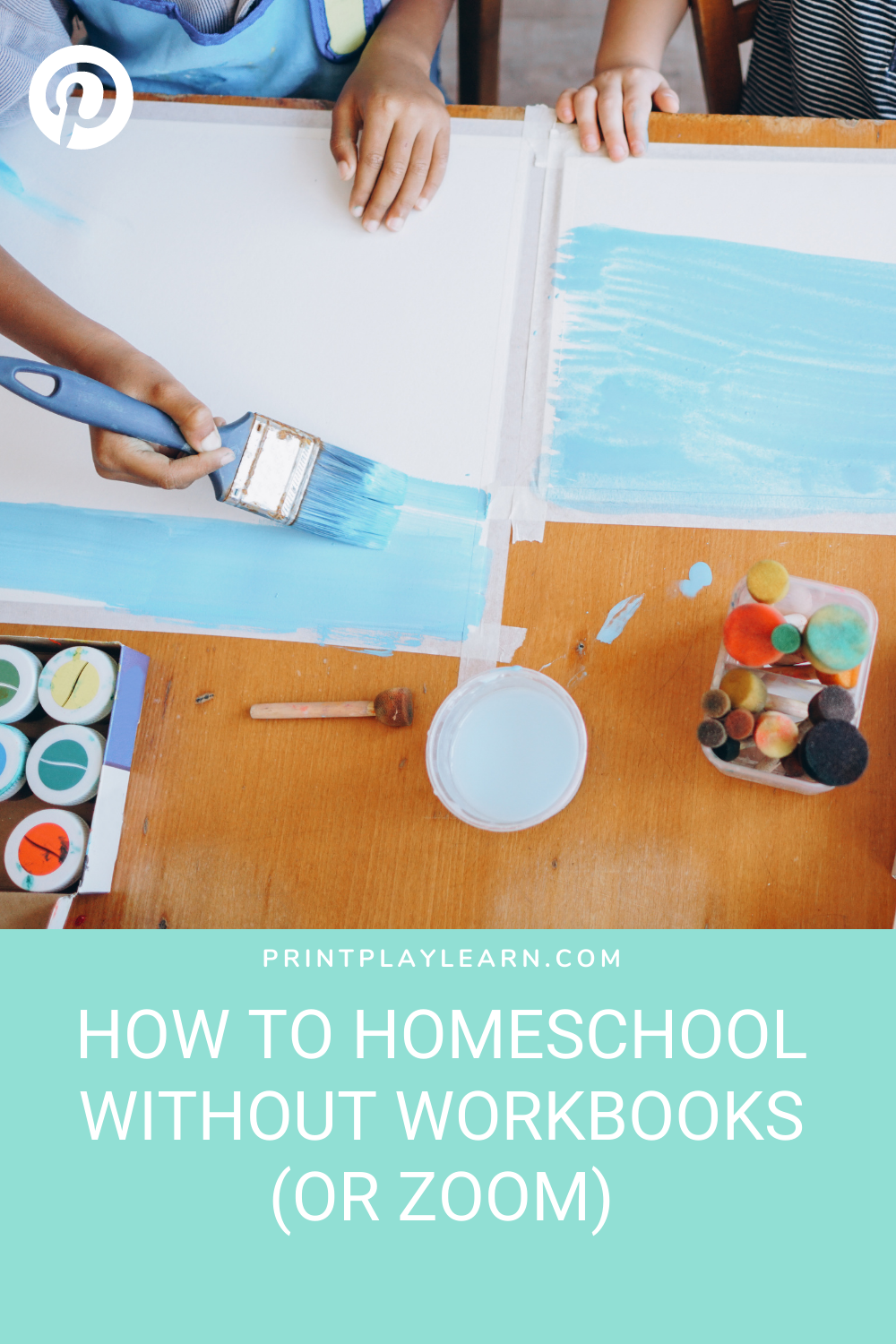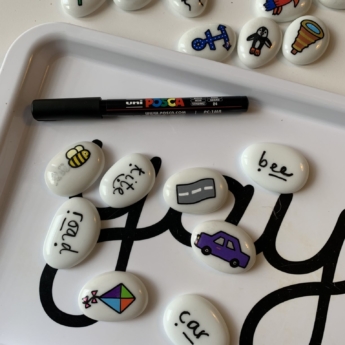How to Homeschool without Workbooks (or Zoom)
After the madness of this year, and most of the world’s parenting population having to try some form of homeschooling, it’s no surprise that more parents are now deciding on home education by choice. Whether you’ve decided to take the leap or you’re curious why anyone would, here’s a look at ways you can help your kids learn at home without any workbooks or zoom calls:
Let them play!
With the academic pressures which seem to seep into our kids’ lives, younger and younger… it’s easy to forget the most important thing our kids can do is: PLAY! Childhood is such a special time for imagination to flourish and for our kids to live without the rules of the ‘real world’. By playing, our children use so many skills we’re hoping we’ll teach in the classroom, from problem solving to social skills, numeracy to fine motor skills. Plus, play is wonderful for a child’s mental health as they get to express their emotions and safely explore and play out ideas or worries.
Chat with your kids
Another easy way to help our kids learn is to simply chat with them. If you’re home schooling, you’ll likely have plenty of time for long conversations with your kids. Take time to really listen to their questions and ideas and help them explore the answers. There’s no limit to where a chat with your kids can take you, or what they might end up learning from one conversation they’re engaged with in (which would have otherwise taken weeks to explain at school).
Focus on their interests
When our children are naturally interested in a topic, their willingness to learn about it is much greater. So, if you can create a project out of your child’s latest obsession – do it! With creative thinking, you can turn anything your child loves into a starting place to learn. You could pick printed learning resources with their favourite animals on or use Pinterest to find activities based on their favourite TV show. Think about what topics you’d like your child to explore (addition, subtraction, literacy, history etc) and then see if you can relate their interests to these.
Keep your eye out for an upcoming blog for more ideas on how to use your child’s interest to help them learn!
Explore
Social distancing allowing, with homeschooling you have the freedom to explore outside the house / classroom and let your explorations be a starting point for many different learning opportunities. You can investigate nature together and see what you find or wander around towns and talk about landmarks or different types of architecture. Museums are obviously also a brilliant place to go to learn!
Find the freedom in tech use
You and your children may be sick of Zoom calls, but tech has so much to offer for our children when it comes to learning. For example: you could use Google to help your children answer questions, watch documentaries together on YouTube or you switch the subtitles of their favourite TV shows and start picking up on another language.
Read more
Reading to our children is an important part of fostering their language development as well as helping to start a love of books and create special family bonds. The more reading you do as part of your home schooling the better, although there’s no need to put pressure on your child to read books to you if they’re not yet interested.
Instead, find other ways to encourage your child to read. Read magazines, read and write shopping lists, turn on the subtitles, have them play fun apps which require reading… life has plenty of opportunities for our children to practice without ‘reading bands’.
Get creating
If there’s one area most schools can’t give enough attention, it’s the arts. But at home, you can encourage your children to create as much as they like and boost their creative skills for life. Whether it’s painting, collaging, designing, dancing, playing Lego – children learn problem solving, self-expression and how to have fun as they create.
Learn through life
Finally, don’t forget all the important things you can guide your children to master by simply being part of family life. There will be plenty of time to practice using the washing machine or to learn how to start budgeting money.
Did you like this article? Why not share it with any other parents who may find it helpful. Plus, browse more playful educational ideas on the Print, Play, Learn blog.


